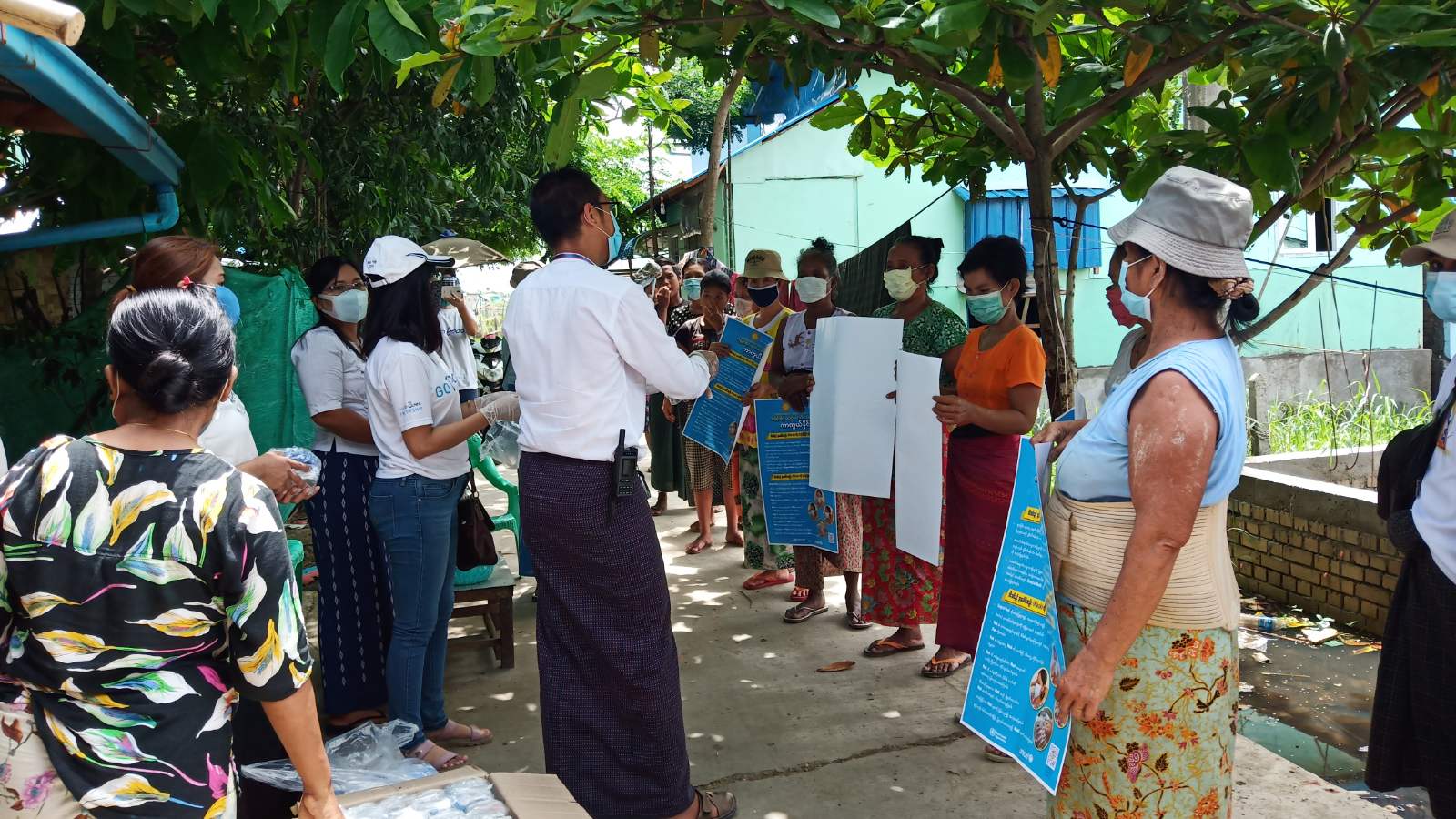The Religions for Peace-UNICEF Global #FaithInAction Initiative Captures Attention of World’s Business Community
October 23, 2020With communities in every country of the world affected by COVID-19, the pandemic has disrupted decades of progress that has been made globally with households being pushed back into poverty and facing food shortages and loss of employment. Children, especially the most marginalised are impacted severely. Millions are out of school with the majority unable to benefit from distance learning; Children’s health and protection at risk because of increased stress and mental health problems, incidence of child abuse in the home and disrupted services such as immunisation and child welfare.
With the historic signing of the #FaithInAction global call to action by UNICEFs Executive Director Henrietta Fore with Religions for Peace and 13 of its senior-most diverse religious leaders at the beginning of the COVID-19 pandemic and roll-out of the partnership initiative, there has been increasing interest amongst the development community to consider more strategic engagement with religious leaders and faith communities. This influence has begun to create significant ripples even within global networks that have traditionally not focussed on the role of faith. As an indicator of this, last month ED Fore, alongside Religions for Peace’s Secretary General Azza Karam, was invited to speak with the world’s top business leaders at the opening panel of the first global event on Faith engagement convened virtually by the World Economic Forum Sustainable Development Impact (WEF SDI) Summit.
In her address at the Summit, ED Fore highlighted that the #FaithInAction initiative, (launched in April 2020 by the Faith and Positive Change for Children, Families and Communities partnership – FPCC), has been working closely with a number of faith-based groups and gathering the unique strengths of each network so that all can be more effective.
ED Fore explained that the partnership is actively working with faith-based organisations and congregational religious leaders during the COVID-19 pandemic to provide distance learning to millions of children through radio, television, and mobile phones; on countering misinformation; and mobilising people for routine immunisation. “Our routine immunisation rates are just about 40 to 60 per cent (during the COVID-19 pandemic) in many countries, and faith-based organisations will make the difference in convincing people why they need to come in and why this (immunisation) is important for children,” she added. virtual event, 22 September 2020
UNICEF, Religions for Peace, and FBO regional teams of the consortium are engaging with faith communities, in ways that address their local contexts. Eastern and Southern Africa Region (ESAR) is preparing to roll-out a series of virtual workshops to assist multi-religious leaders and faith communities in carrying out the above-mentioned global guidelines with special focus on prevention of Violence against Children and Women. The Eastern Europe and Central Asia Region (ECAR) team is preparing for a coordinated multi-religious initiative to support Children on the Move and communities hosting migrant and refugee children and will convene a kick-start consultation event in December, later this year. The Western and Central Africa Region (WCAR) is identifying ways to improve the quality of education and child protection through Koranic education programmes as part of their wider Child Friendly Community Initiative, while the Regional Office of South Asia (ROSA) are re-purposing their long-standing Religious Leadership platform to address the specific issues surrounding COVID-19.
The FPCC partnership initiative is well-positioned to play a lead convening role at community level to help coordinate child and family-focussed efforts of for multiple religious groups alongside governments and other civil society actors. To this end the tri-partite Partnership (UNICEF, Religions for Peace, and Joint Learning Initiative-JLI) is promoting the establishment of interfaith coordination committees for children that will provide sustainable mechanisms for consolidating the work amongst faith actors as well as the support to their work by other global development partners.
UNICEF has a long history of convening and coordinating interreligious faith-based organisations, needed to advance the cause of children and families. ED Fore appealed to the business community to join forces in supporting faith engagement for children, families, and communities. “My call to you all, businesses and partners, is those who have not partnered with faith-based organisations, jump right in. They are the best partners you will ever have. We have done it for 70 years successfully. So please join in.”
With the financial support of businesses, institutions, and private donors, the #FaithInAction partnership can continue to work with religious leaders and organisations to bring critical concrete support as well as social and behavioural change for children and provide leadership in this growing field of strategic multi-religious engagement.
Faith and Positive Change for Children, Families and Communities (FPCC), is a partnership consortium of UNICEF, Religions for Peace, and Joint Learning Initiative on Faith and Local Communities (JLI). The platform works through Religions for Peace’s national interreligious councils and women and youth networks, in collaboration with a wide range of local faith-based organisations.
